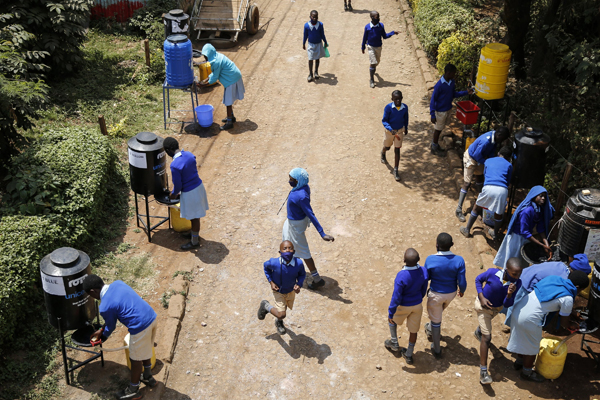Will standard operating procedures in Uganda’s schools be sustainable?

It is an illusion to think standard operating procedures will work without a culture of self-drive. With Covid-19 globally being viewed, discussed and projected as negative, on the other hand, it has presented positive aspects as new paradigms for our businesses and life to thrive on.
With certainty, I can guarantee that students in any education institution anywhere in the world will be asked to write an essay about Covid-19 effects and benefits in their exam or course work. As part of a health benefit, implementation of SOPs such as strict compliance and adherence will gradually become part of our life.
Washing hands frequently with soap and sanitisation might be hard to maintain but will greatly reduce the number of communicable diseases in our midst. Maintaining social distance may sound a hard standard but will slowly interrogate out rich social behavior to challenge the congestion that characterise our lifestyles right from homes, classrooms and roads. Not only should the SOPs be restricted to Covid-19, but should rather be customised and cascaded across all work spheres.
The first sphere should be the food and juice industry. The food and juice industry if not checked will cause another pandemic in cancers, among consumers of unprotected food items. A good example is a chain of businesses along our busy roads. Walk around Wandegeya in Kampala city, in broad day light or night, just on the stretch along Bombo Road, you will find chicken, chips, eggs, sausages, egg rolls, fish cabbages, chapatti, name it, all being fried in the open without any consideration for the reversing automobiles that raise dust from time to time.
This happens with total disregard to standard operating procedures of having cooks’ and chef’s hair covered with a piece of cloth. These roadside restaurants (Toninyiras)light fires on roadsides with less consideration for automobiles that use petrol and are most times parked and operated next to the charcoal stoves by the roadside.
Preparing food under scotching sunshine, dust, uncontrolled passersby and wind remains a health hazard for both consumers and cooks who operate such eateries.
As an SOP, relocation, provision of shelter, gloves, covered utensil boxes, head and face gear to all food vendors on roadside restaurant should be a non-negotiable matter lest we harvest diseases in the time to come. There should be deliberate efforts to sensitise all business owners on the observance of health standards.
Patrick Kaboyo




